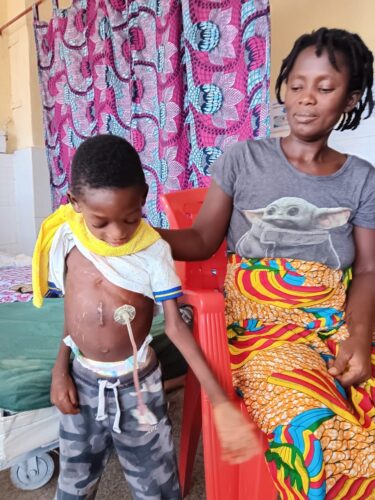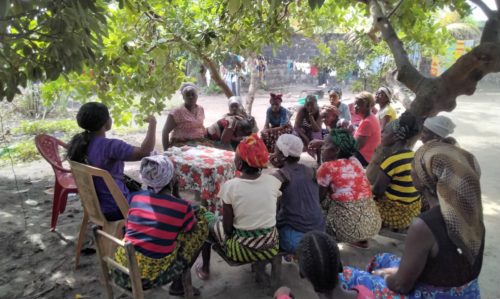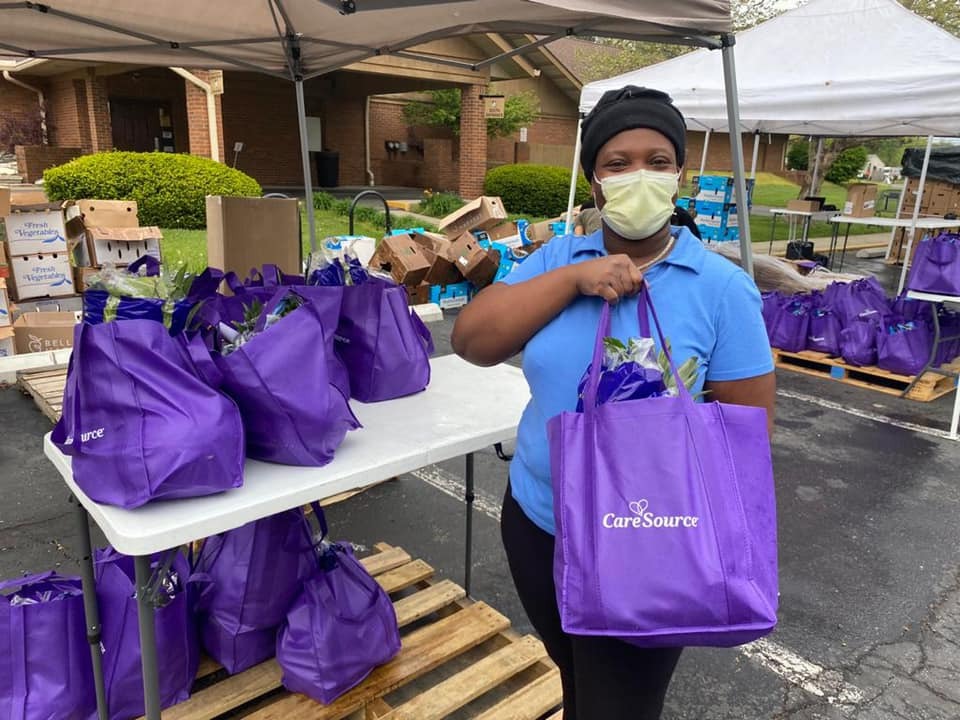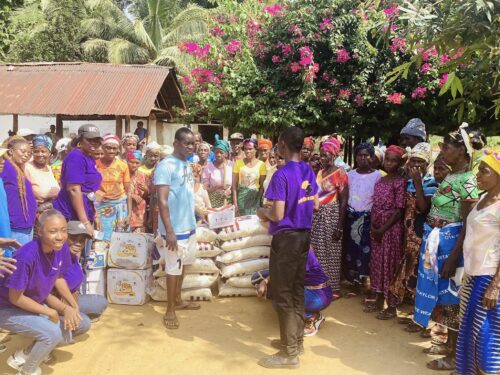End Hunger Virus Donation
Last year, Nubian Queen had the privilege of spreading joy and happiness
to the elderly in different counties of Liberia. Our team dedicated to giving
back to the community and putting smiles on the faces of those in need.
Nubian Queens has set a target to “eliminate hunger and food insecurity by 2025.” Both Agenda 2063 and the Nubian Queen Executive Board within the USA decision on Accelerated Agricultural Growth and Transformation have reaffirmed this commitment since 2016. Unfortunately, Africa is not currently on track to meet these targets. Immediate, mutually reinforcing interventions are required to bring the continent closer to eliminating hunger and food insecurity.
The purposes of this report are (1) to describe the path that Africa has been on with respect to reducing hunger and pursuing food security, (2) to show where that path would likely lead in the coming years without significant change in policy, and (3)outlines the conditions and actions necessary to put Africa on track to eliminating hunger and food insecurity as soon as possible. The Food and Agricultural Organization of the United Nations (FAO) defines hunger, or undernourishment, as an inability to acquire enough food to satisfy dietary energy requirements. Food security is a situation where all people at all times have access to food and is composed of four dimensions: food availability, economic and physical access to food, food utilization, and stability over time. This report will mainly focus on the prevalence of undernourishment and net dependence on imports as the two indicators of hunger and food security, respectively. Nearly one in five people living in Africa is hungry. That rate has decreased steadily since the mid- 1990s, with the fastest decline in West Africa and the lowest undernourishment rate in Northern Africa. Unfortunately, the total number of undernourished Africans has climbed since 1991, largely driven by increasing population. East Africa has the highest levels of hunger in terms of both prevalence and absolute numbers—about half of the total undernourished population of the continent is in its Eastern region
On the supply side, Africa was not producing enough food to feed its own population adequately in the early 1990s, but its exports and imports of agricultural goods were both relatively small and in balance. Imports have since grown to be over four times the level of exports (in tons), and net imports are now about 14 percent of total agricultural demand.
To analyze whether or not Africa is on track to eliminate hunger and food insecurity by 2025, this research uses the International Futures (IFs) forecasting system. IFs, and this research, draws heavily on data from the FAO and other international sources. The Base Case scenario of IFs considers historical patterns to explore the dynamic future path of Africa.
Looking at the path going forward, without substantial change in the dynamics of demand and supply, the portion of Africans who are undernourished will fall from about 17 percent in 2025 to about 12 percent in 2030. Over the same period, the import dependence of Africa will rise from 14 percent of total demand to 25 percent. Africa is not on track to eliminate hunger and food Insecurity by 2025 with Nubian Queens donations to help eradicate hunger virus in Africa beginning Liberia and Sierra Leone.
Healthcare: Donation, Financial Assistance .. Nubian Help many people with hospital bill and Assistance within Africa
Nubian Queens Investing in African health systems is an opportunity to accelerate economic development and growth, contribute to saving millions of lives and preventing life-long disabilities, and move countries closer to achieving objectives of national poverty reduction strategies and the Millennium Development Goals (MDGs). To promote increased and improved health investment, the Africa Investment Case is developed by the Harmonization for Health in Africa to: (i) support African leaders, and their regional and global partners focus their attention and resources on health investment that works, (ii) provide an evidence base for Ministries of Health to make the case to Ministries of Finance, national Parliaments, and other key stakeholders that investing in health makes economic sense and will bring considerable returns, (iii) deployed in the health system can be increased through priority-setting processes based on demographic trends and the burden of disease, and (iv) to mobilize leadership at the national, regional, and global levels to support national health systems in Africa in their efforts to increase the peace and sustainability of achieving better health and economic development outcomes for the people of Africa.

Women and Children: Live-Skill training, Children and Gender Base Violence Advocate
Nubian Queens role is focus on local, national, and regional leaders. …
Invest in women and girls.
Ensure political participation for women. …
Educate and engage communities. …
Believe and support GBV survivors. .
Women must support other women
Eliminating sexual and gender-based violence and protecting the health and rights of women and children in humanitarian settings
Around the world, violence and conflict are on the rise, both as the cause and the consequence of instability, fragility and mass displacement of people. Women and girls are particularly vulnerable in such humanitarian crises. Violence against women, boys and girls often increases during periods of conflict, and women and girls have been shown to be more adversely affected when populations are displaced by all types of disaster. In 2017, 68.5 million people were forcibly displaced worldwide as a result of persecution, conflict or generalized violence; these included 25.4 million refugees, 40 million internally displaced people and 3.1 million asylum-seekers.1 The total number of displaced people and asylum seekers represented an increase of 2.9 million from 2016. There are 2 billion people living in countries where development outcomes are affected by fragility, conflict and violence.2 In 2018, it is estimated that 34 million women of reproductive age will have been negatively affected, with 500 maternal deaths daily in humanitarian and conflict settings.3 Despite these high numbers, statistics fail to show the human face of this ongoing tragedy; the real struggle every individual and family living in fragile situations confront each day.

Educational Empowerment: Donations, Scholars slots
Education serves as a transformative force, fostering economic development, societal progress, and individual empowerment. In Africa, the significance of education cannot be overstated. This article delves into the multifaceted importance of education in Africa, drawing on the recent statistics from reputable research led by UNESCO and the United Nations. The Current state of Education in Africa:
To comprehend the importance of education, let’s examine the current state. According to UNESCO (2023), sub-Saharan Africa has the highest out-of-school rate globally, with over 30 million primary school-aged children lacking access to education. The challenges include inadequate infrastructure, teacher shortages, and socio-economic barriers. Economic Empowerment and Poverty Alleviation:
Education is a cornerstone for economic empowerment and poverty alleviation. The World Bank (2022) reports that each additional year of schooling can increase an individual’s earnings by 10% on average. Investing in education in Africa is crucial for breaking the cycle of poverty and fostering sustainable economic growth.
Gender Disparities and the Empowerment of Girls: Despite progress, gender disparities persist. UNESCO (2023) notes that, in sub-Saharan Africa, 9 million girls will never attend school compared to 6 million boys. Education is especially vital for girls, acting as a shield against harmful practices such as Female Genital Cutting/Mutilation (FGC/M), child marriage, and early pregnancy, all of which perpetuate poverty and limit opportunities for future generations.
Impact on Health and Wellbeing:
Education plays a pivotal role in promoting health and wellbeing. Educated individuals make informed decisions regarding their health, contributing to improved community health. According to the World Health Organization (2022), educated mothers are more likely to seek medical care for their children, reducing child mortality rates.
Breaking the cycle of ignorance:
Education counters ignorance, fostering critical thinking and understanding among diverse communities. In conflict and crisis-heightened regions, education becomes a beacon of hope and contributes to the development of peaceful, cohesive societies. Education is Life Saving and Changing The importance of education in Africa is undeniable. It is a potent tool for economic development, societal progress, poverty alleviation, and individual empowerment. As we aspire to a more equitable and prosperous future, investing in education in Africa must be a top priority. By partnering with Nubian Queens work, you are helping to address education challenges in some of Africa’s most vulnerable communities, enabling children to unlock their full potential and strive for a future free from poverty.
Invest in education today: Become a student sponsor for $55 a month and become an ally of education. This invaluable opportunity will bring immense happiness and wealth to your life, and will help change the future for a child living in poverty. You will have the opportunity to exchange letters with each other twice a year, becoming friends and important parts f each other’s lives forever. Kindly hit the donation button

Fundraiser, Go Fund Me, Pledges and Donations

Volunteerism & Visitation: Orphanage Homes, Hospitals and Schools

Nubian Queens is always making history with our hardworking team! We recently had the pleasure of meeting our dedicated team members who have been tirelessly working behind the scenes to make a positive impact in all parts of Liberia and Sierra Leone. Our team has been instrumental in ensuring that the donations we provide for the elderly are shared out and that the people in our communities are kept happy. Their dedication and hard work are truly inspiring. As we continue our mission to give back to the elderly and help alleviate hunger in Liberia, we are calling on the international community to support our efforts. Together, we can make a difference and bring hope to those in need. Thank you to our amazing team and supporters for all that you do!

